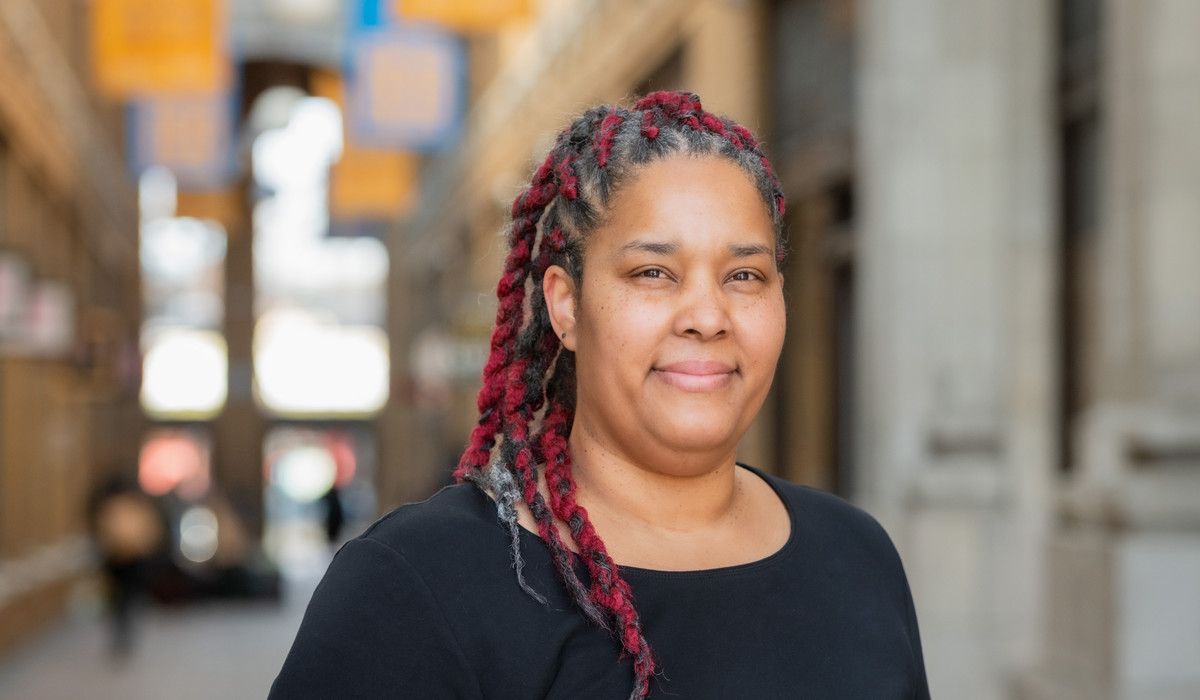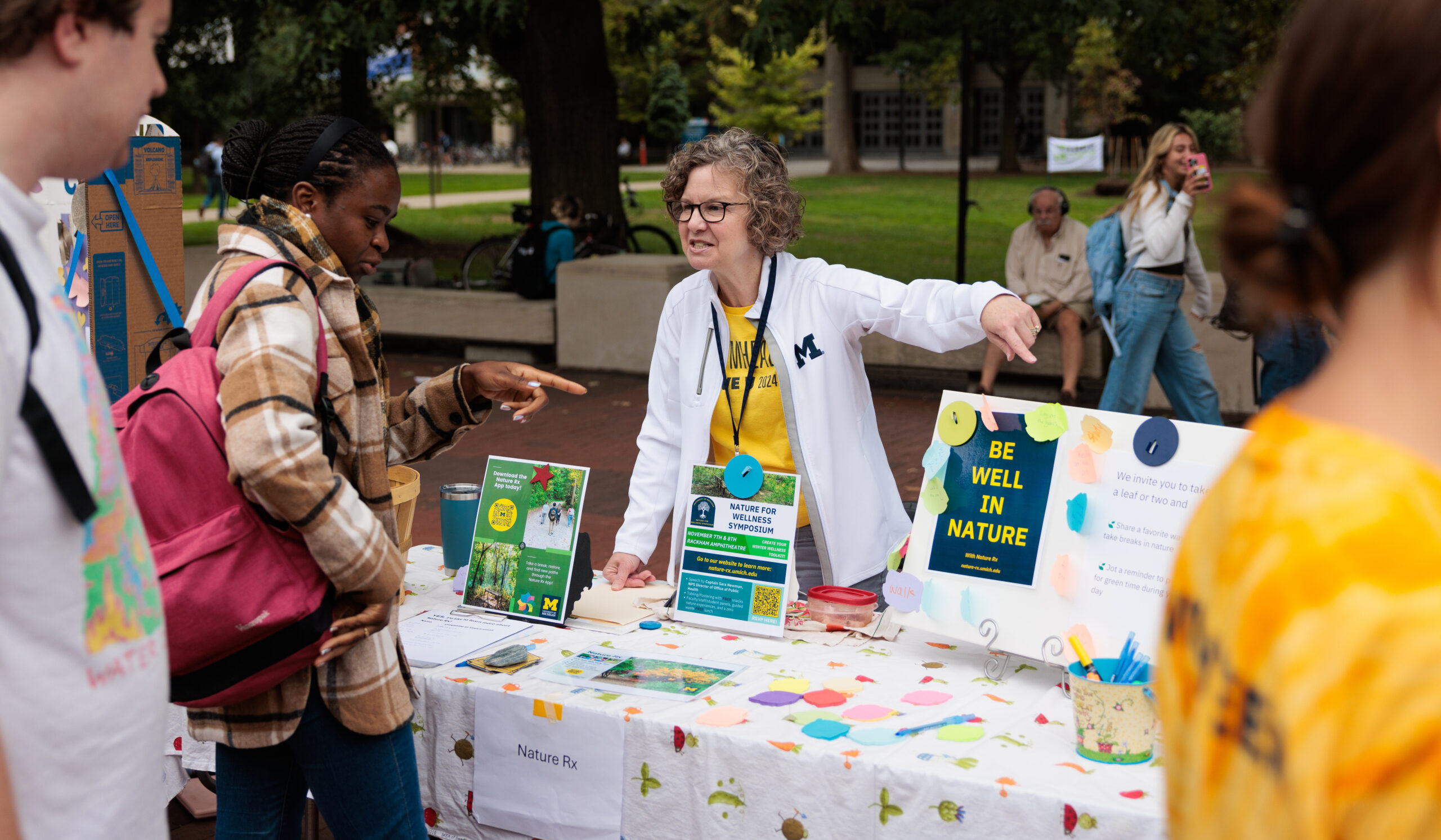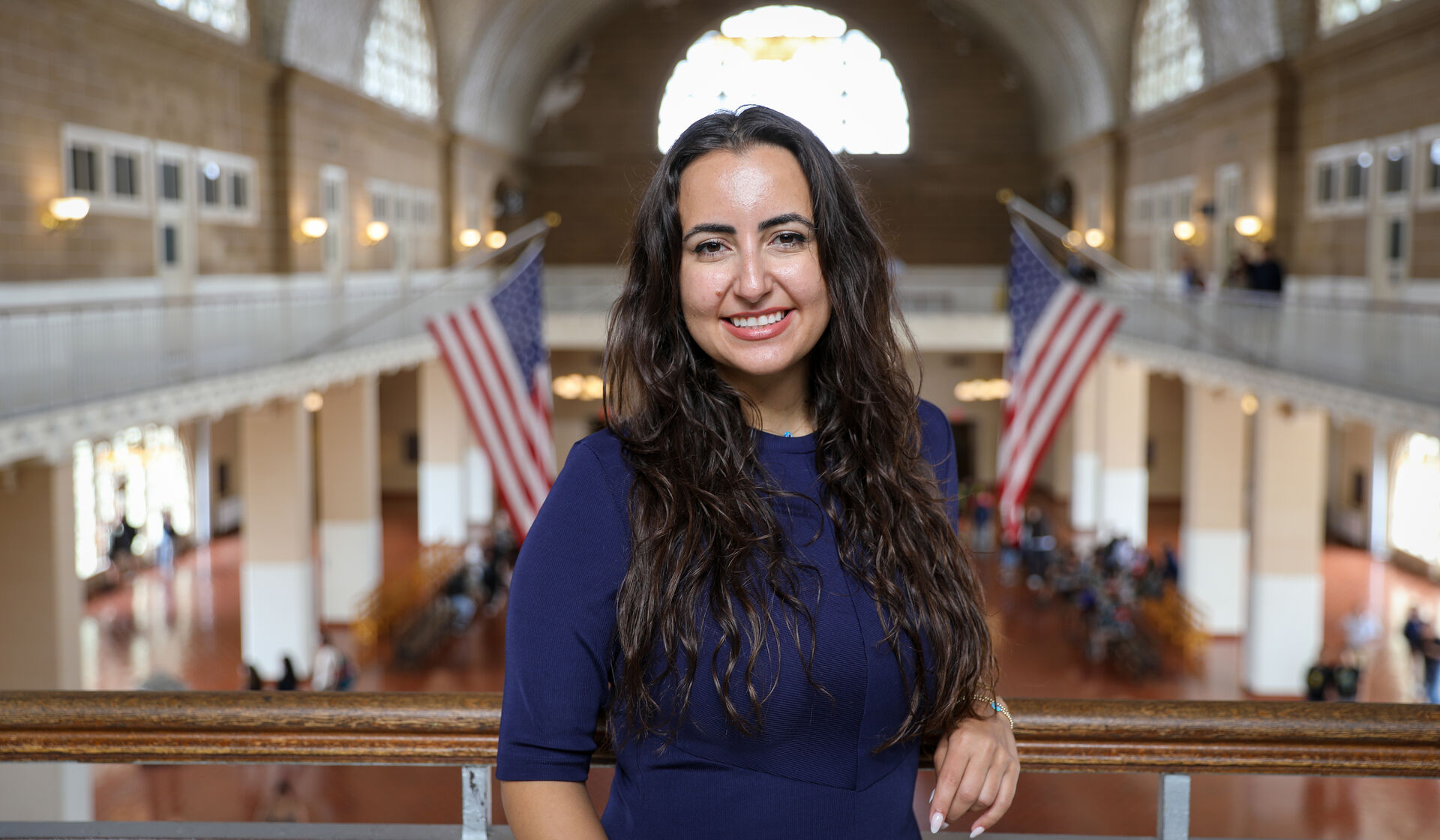Kristie Dotson, professor of philosophy and Afroamerican and African studies in LSA, is a University Diversity and Social Transformation Professor whose research is focused in the areas of feminist philosophy and epistemology (that is, our understanding of knowledge). Michigan Alum spoke with her about her work.
Your work focuses on how knowledge-related concerns play a role in maintaining and obscuring problematic states of affairs. Can you provide an example?
Sure. I can offer an example very close to home.
The other day, someone in my small community leaned over and said, “I mean, do you know anyone who has died of COVID-19? I don’t. It could all be a hoax, you know.”
After hearing this, I was at a loss for words, not because I shared their suspicions. The COVID-19 pandemic is real. People are passing away at unimaginable numbers. And I have no doubt about that. But the conspiratorial glance and the pressure to entertain the possibility of a hoax said that it really didn’t matter what I thought I “knew.” What mattered was that the two uses of the word “know” in their observations were meant to indicate that there was nothing “to know” about the COVID-19 pandemic, only something “to suspect.” Faced with this kind of scenario, there is often very little to say.
In my research, I work on the ways deployment of the infinitive “to know” matter and how such deployments can go wrong. Specifically, I work on the ways it is used to create, manipulate, and maintain problematic situations, institutions, and structures. I call this “epistemic oppression.” Information, misinformation, and unknowns around COVID-19 are not just social and political issues; they are also epistemological issues, i.e., they concern knowledge and knowing. In my research, I work at the intersection of social and political concerns and epistemological concerns.
What is the intersection of epistemology and feminism?
Good question! Well, feminists of all sorts have to push back on a great deal of “everybody knows” common sense. Being a Black feminist, I find that to be true. For example, I was reading about the trial of Ruby McCollum, possibly the first Black woman to testify to the paternity of her child by a white man who allegedly had sexually assaulted her, and was struck by how many “common sense” assumptions about Black women in 1952 are still around today, 70 years later.
They’re all false, of course. Nothing is true of millions of people. And many of those stereotypes are not true of anyone. But truth does not appear to be a reliable calibrating agent for what someone thinks they know in everyday life. If it was, I imagine our worlds would look very different than they do today. So how does “knowledge” function? What is it in our everyday lives? What does it authorize? What does it preclude? How ought it function?
One of the intersections between epistemology and feminism can be found where false and misleading information is taken as knowledge, which tends to make it resistant to challenge, change, and revision.
The above questions are different from the more traditional epistemological question of “What is knowledge (when it is successful)?” Not a bad question, if you ask me. It is just not the only question that should concern 21st-century epistemology. Today’s times should attest to that.
What is the biggest lesson you’ve learned from your students?
They teach me that “they’ll learn much more than I’ll ever know” (from “What a Wonderful World”). It’s a good lesson, I think, a good reminder of possible futures.





